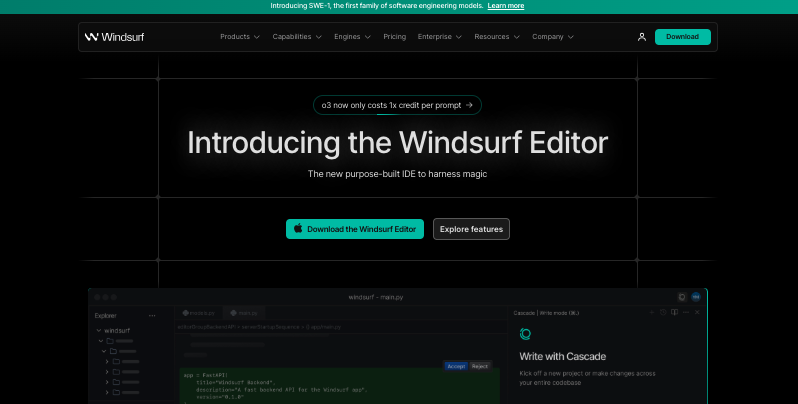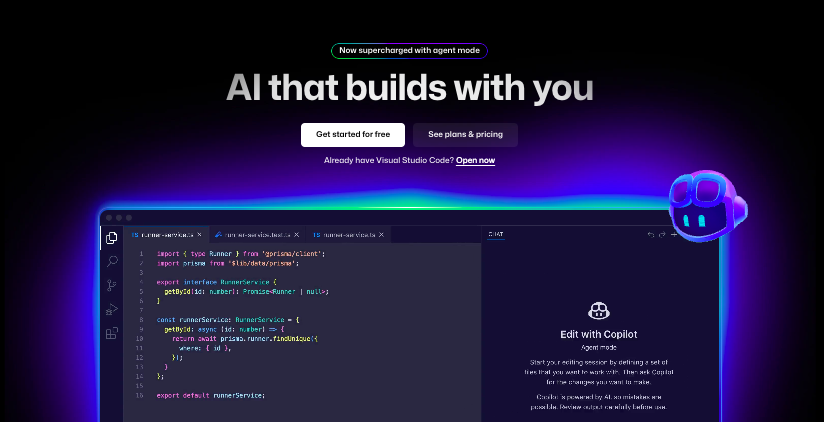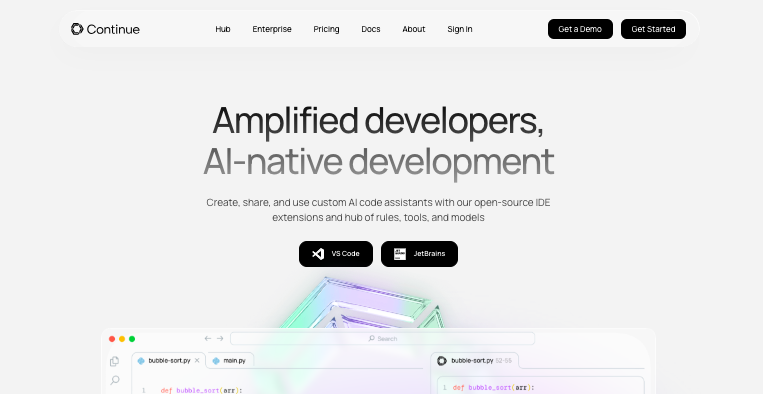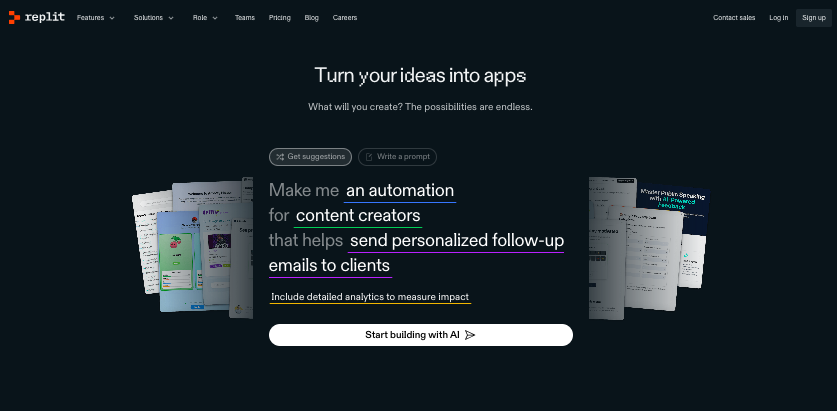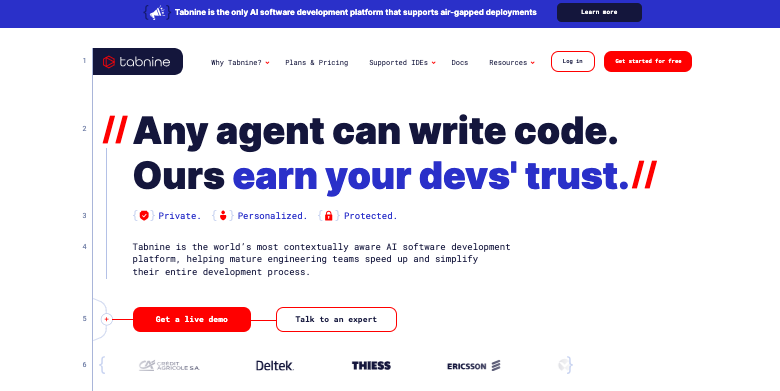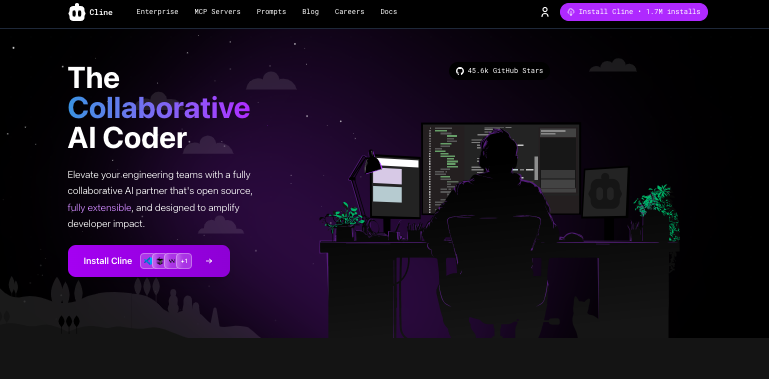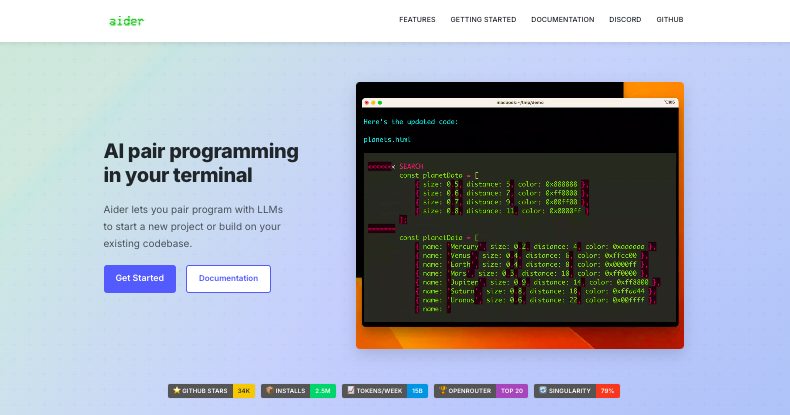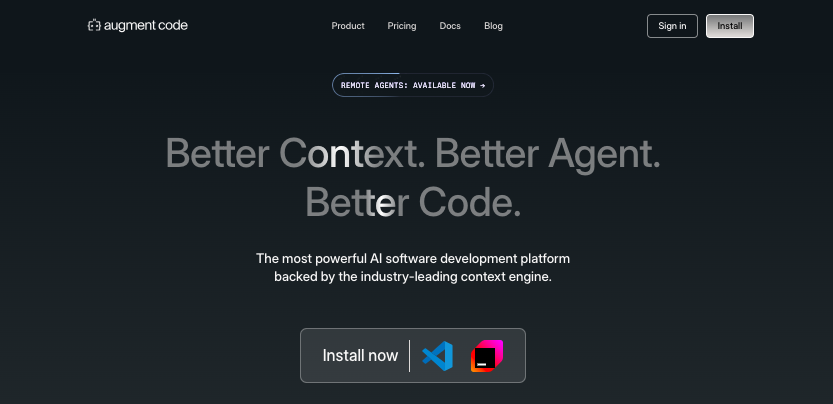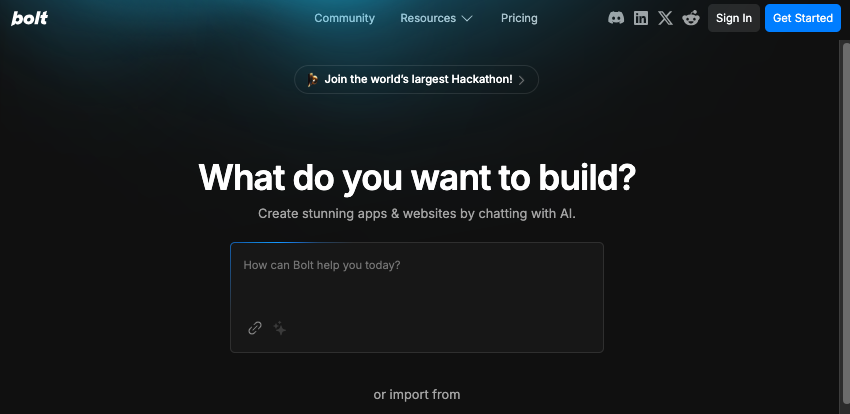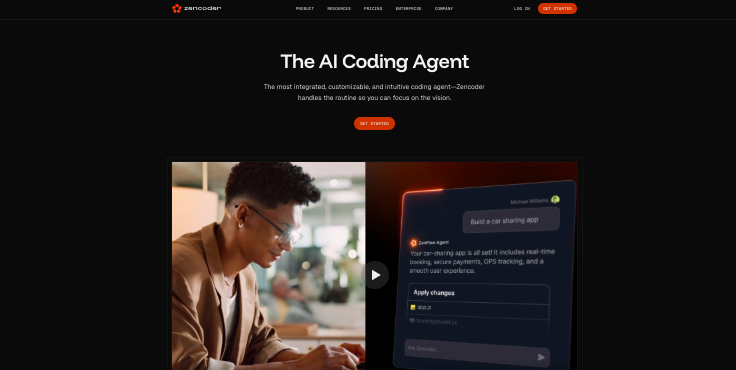Cursor has established itself as “the best way to code with AI”, but the AI-powered development space is rapidly evolving.
If you’re looking for more affordable options, better integration with your existing workflow, or specific features that Cursor doesn’t offer, there are several compelling alternatives worth considering.
In this comprehensive guide, we’ll explore the top 11 Cursor AI alternatives that are making waves today, each offering unique strengths for different development needs.
Let’s dig in.
Check Out: Best Programming Software
1. Windsurf (formerly Codeium) – The Free Powerhouse
Best for: Developers seeking a free, full-featured AI IDE
Windsurf has emerged as one of the strongest competitors to Cursor, offering many similar features without the premium price tag. As “the world’s most advanced AI coding assistant for developers and enterprises,” Windsurf Editor is positioned as “the first AI-native IDE that keeps developers in flow.”
Key Features:
- Cascade Agent: An intelligent agent that not only fixes bugs and errors but also anticipates potential issues before they arise
- Supercomplete: Predicts developers’ next moves by analyzing the current code context and showcases a diff box next to code changes
- Session History: Unlike Copilot, Windsurf maintains session history, allowing for a more interactive and context-aware conversation flow
- Built on VS Code for familiar interface
Best Use Cases: Individual developers, small teams, and anyone wanting enterprise-level features without the cost
Also Read: Best Scratch Alternatives
2. GitHub Copilot – The Established Standard
Best for: Teams already integrated with GitHub ecosystem
GitHub Copilot remains the gold standard for AI coding assistance, especially for teams heavily invested in the GitHub ecosystem. While Cursor and Windsurf are full-fledged IDEs (forks of VS Code), GitHub Copilot is a VS Code extension rather than a standalone IDE.
Key Features:
- Deep integration with GitHub workflows
- Extensive language support
- Multi-file orchestration: For large-scale refactoring and automation, Copilot offers a more advanced toolset
- Chat functionality for code explanations
- Enterprise security and compliance features
Best Use Cases: GitHub-centric workflows, enterprise environments, large-scale refactoring projects
Explore: Best GitHub Copilot Free Alternatives
3. Continue.dev – The Open Source Champion
Best for: Privacy-conscious developers and those wanting full control
Continue.dev stands out as a powerful open-source alternative that gives developers complete control over their AI coding experience. One developer noted: “I use Cline + Openrouter API. It is good enough for me to replace Cursor.”
Key Features:
- 100% open source and self-hostable
- Support for multiple AI models (OpenAI, Claude, local models)
- Custom model integration
- VS Code and JetBrains extensions
- No data collection or telemetry
Best Use Cases: Security-sensitive projects, custom AI model usage, developers preferring open-source solutions
Explore: Best Codewars Alternatives
4. Replit Agent – The Full-Stack Innovator
Best for: Rapid prototyping and full-stack development
Replit Agent takes a unique approach by focusing on complete application development rather than just code assistance. It “allows users to turn natural language prompts into fully functioning apps or websites, making development accessible to both technical and non-technical creators” and offers “real-time collaboration” that “facilitates live coding with team members.”
Key Features:
- Natural language to full app conversion
- Built-in hosting and deployment
- Real-time collaborative coding
- Integrated development environment
- Multi-language support
Best Use Cases: Rapid prototyping, educational environments, collaborative development, full-stack projects
Explore: Best Open-Source GitHub Alternatives
5. Tabnine – The Enterprise Security Leader
Best for: Enterprise environments with strict security requirements
Tabnine focuses heavily on enterprise security and compliance while providing robust AI coding assistance. It offers both cloud and on-premises deployment options.
Key Features:
- On-premises and private cloud deployment
- Advanced security and compliance features
- Custom model training on your codebase
- Support for 80+ programming languages
- IDE-agnostic (works with multiple editors)
Best Use Cases: Large enterprises, security-sensitive projects, teams using multiple IDEs
Check Out: DataCamp vs CodeCademy
6. Cline (formerly Claude Dev) – The Autonomous VS Code Extension
Best for: Developers wanting autonomous coding capabilities within VS Code
Cline is an open-source autonomous coding assistant for VS Code that has dual “Plan” and “Act” modes, allowing the agent to devise a plan and execute steps one by one. One developer called it “one of the most important extensions for any IDE out there – has been a game changer for how I work over the past few months.”
Key Features:
- Custom MCP (Model Context Protocol) servers for connecting with specific tools and workflows
- MCP Marketplace introduced in February this year for enhanced extensibility
- Creates/edits files, runs commands, uses browsers, and extends via custom tools
- Advanced prompt engineering with XML tags for tool calling
- Fully open source and extensible
Best Use Cases: VS Code users, autonomous development workflows, custom tool integration, web development
Also Read: Best Platforms To Build Social Media Apps Without Coding
7. Aider – The Terminal-Based AI Pair Programmer
Best for: Developers who prefer command-line workflows
Aider lets you pair program with LLMs to start a new project or build on your existing codebase and is considered one of “the best AI developer tools” alongside other top contenders.
Key Features:
- Works best with Claude 3.7 Sonnet, DeepSeek R1 & Chat V3, OpenAI o1, o3-mini & GPT-4o
- Can connect to almost any LLM, including local models
- Terminal-based interface for command-line enthusiasts
- Git integration for version control
- Support for multiple programming languages
Best Use Cases: Terminal-based workflows, existing codebases, developers preferring command-line tools, local model usage
Also Read: BitsBox Review
8. Augment Code – The Professional Engineer’s Choice
Best for: Professional software engineers working with large codebases
Augment Code describes itself as “the first AI coding assistant built for professional software engineers and large codebases” and is noted as a “current go-to tool despite higher costs” for developers seeking agentic capabilities.
Key Features:
- Industry-leading context engine for understanding large codebases
- Augment Agent technology with a 70% win rate over GitHub Copilot
- Real-time code suggestions, Slack integration, and Next Edit feature for automating updates across entire codebases
- Works within popular IDEs like VS Code and JetBrains
- Can execute code, run terminal commands, find bugs, and provide intelligent code analysis
Best Use Cases: Large enterprise codebases, professional software engineering, complex multi-file projects, teams requiring deep code understanding
Explore: Online Coding Classes For Kids
9. Bolt.new – The Browser-Based Full-Stack Generator
Best for: Rapid web application prototyping and deployment
Bolt.new is an AI-powered web development coding assistant accessible via browser that lets users “prompt, run, edit, and deploy full-stack apps” just by describing what they want. Developed by StackBlitz, it enables developers to deploy applications directly from the browser, eliminating the need for local setups.
Key Features:
- Browser-based development environment
- Full-stack application generation from natural language
- No local setup required
- Direct deployment capabilities
- Robust features for web development
- Real-time preview and editing
Best Use Cases: Rapid prototyping, web application development, no-setup development, quick deployments, educational use
Check Out: Best HackerRank Alternatives
10. Zencoder.ai – The Autonomous Development Platform
Best for: Teams wanting end-to-end AI-powered development workflows
Zencoder is positioned as “your AI-powered coding agent, built to change how you develop software” and focuses on autonomous development capabilities.
Key Features:
- AI-powered coding agents
- Automated workflow management
- Multi-repository support
- Advanced code analysis and optimization
- Integration with popular development tools
Best Use Cases: Development teams looking for comprehensive AI automation, complex multi-service applications
How to Choose the Right Cursor Alternative?
When selecting a Cursor alternative, consider these key factors:
- Budget Constraints: Windsurf offers the best free alternative, while GitHub Copilot provides the most comprehensive paid solution.
- Security Requirements: For enterprise environments, Tabnine’s on-premises options or Continue.dev’s self-hosted solution may be ideal.
- Ecosystem Integration: If you’re heavily invested in specific platforms (GitHub etc.), choose tools that integrate well with your existing workflow.
- Development Style: For rapid prototyping, consider Replit Agent. For traditional coding assistance, GitHub Copilot or Windsurf are excellent choices.
- Team Collaboration: If real-time collaboration is crucial, Replit Agent’s live coding features stand out.
Explore: LeetCode vs Codewars
Final Thoughts
The AI coding assistant landscape is evolving rapidly, with new features and capabilities being added regularly.
The competition between “Windsurf, Cursor, Cline, and GitHub Copilot” continues to drive innovation, ultimately benefiting developers with better tools and more options.
While Cursor remains a strong contender in the AI coding space, these alternatives each offer unique advantages that may better suit your specific development needs, budget, or security requirements.
The key is to evaluate your priorities and choose the tool that best aligns with your development workflow and goals.
Enjoyed the post?

